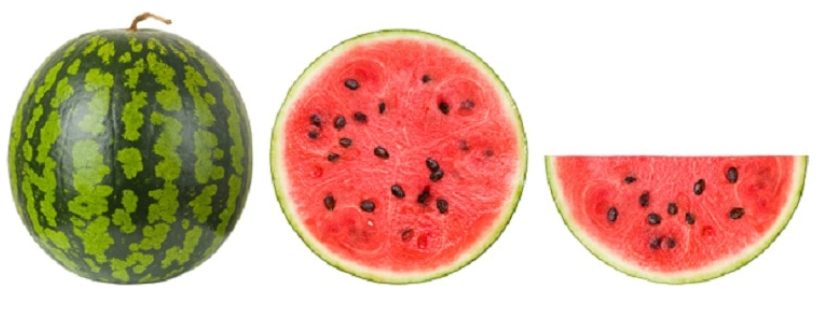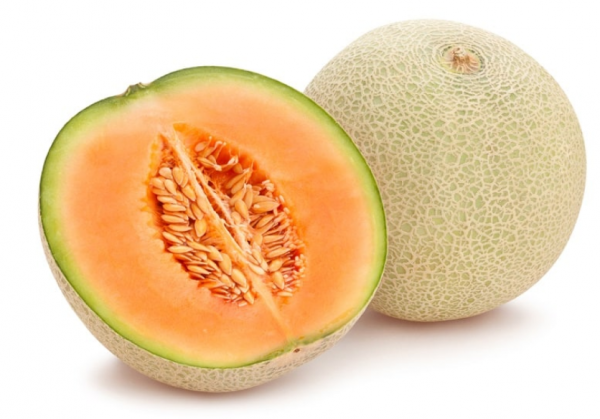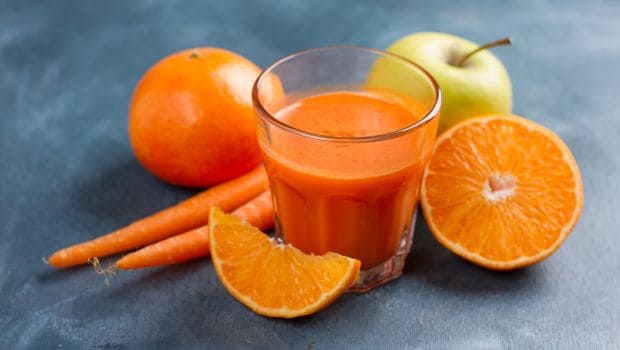“The human body heals itself and nutrition provides the resources to accomplish the task.”
– Roger Williams
Water serves a number of essential functions to keep us all going:
- It assists in flushing waste mainly through urination
- Acts as a shock absorber for the brain, spinal cord and fetus
- Lubricates your joints
If don’t drink enough water daily this can lead to dehydration potentially causing headaches, skin problems, muscle cramps, low blood pressure and a rapid heart rate. Prolonged dehydration can lead to organ failure. Do you know much water you should you drink per day?
Did you know there are many healthy foods that can contribute a large amount of water to your diet?
1. Watermelon
Water content: 92%
A 1-cup (154-gram) serving contains over a half cup (118 ml) of water, in addition to some fiber and several important nutrients, including vitamin C, vitamin A and magnesium. It is also quite low in calories, providing only 46 calories per cup.
This compound has been studied for its ability to reduce oxidative damage to cells, which has been linked to diseases such as heart disease and diabetes.
2. Strawberries
Water content: 91%
Furthermore, strawberries provide lots of fiber, disease-fighting antioxidants and vitamins and minerals, including vitamin C, folate and manganese.
Eating strawberries on a regular basis has been shown to reduce inflammation, which can help protect against heart disease, diabetes, Alzheimer’s and various types of cancer.
Incorporate fresh strawberries into your morning smoothie by trying the Mighty Berry Smoothie recipe.
3. Cantaloupe
Water content: 90%
One cup (177 grams) of cantaloupe is composed of about 90% water and delivers more than a half cup (118 ml) of water per serving.
One cup of cantaloupe also contains 2 grams of fiber, which works together with water to promote fullness and reduce your appetite.
Additionally, cantaloupe is rich in vitamin A, providing 120% of your daily needs in a 1-cup (177-gram) serving. Studies have shown that vitamin A may boost immune health by protecting against infection.
4. Peaches
Water content: 89%
Peaches are a very nutrient-dense and hydrating fruit.
Close to 90% of their weight is water. They also provide several important vitamins and minerals, such as vitamin A, vitamin C, B vitamins and potassium.
Furthermore, eating peaches with the skin on may also contribute disease-fighting antioxidants like chlorogenic acid to your diet.
We have posted some peach smoothie recipes – Creamy Orange Smoothie and Spicy Peachy Cream Thirst Quencher.
5. Oranges
Water content: 88%
Oranges are incredibly healthy and may provide a number of health benefits.
There is almost a half cup (118 ml) of water in one orange, along with fiber and several nutrients.
These include vitamin C and potassium, which may boost your immune function and heart health.
Oranges are also rich in disease-fighting antioxidants, including flavonoids, which may prevent cell damage by reducing inflammation.
Incorporate fresh oranges into your morning smoothie. Try making this Creamy Orange Smoothie or making freshly squeezed juice Citrus Cuke Vegetable Juice recipe.
6. Skim Milk
Water content: 91%
It’s made up of mostly water and provides a considerable amount of vitamins and minerals, including vitamin A, calcium, riboflavin, vitamin B12, phosphorus and potassium.
7. Cucumber
Water content: 95%
They are made up almost entirely of water and also provide a small amount of some nutrients, such as vitamin K, potassium and magnesium.
Try making this delicious summer vegetable juice recipe – Tropical Cucumber Vegetable Juice Recipe
8. Lettuce
Water content: 96%
One cup (72 grams) of lettuce provides more than a quarter cup (59 ml) of water, in addition to 1 gram of fiber. It also provides 5% of your daily needs for folate.
Folate is important for pregnant women, as it can help prevent neural tube birth defects.
Additionally, lettuce is high in vitamins K and A, both of which have been studied for their roles in keeping your bones and immune system healthy.
9. Broth & Soups
Water content: 92%
Broths and soups are usually water-based and have the potential to be very hydrating and nutritious.
For example, 1 cup (240 grams) of chicken broth is made almost entirely of water, which contributes a decent amount to your daily hydration needs.
Try this Bone Soup Basics recipe if you want to strengthen your bone density.
10. Zucchini
Water content: 94%
A 1-cup (124-gram) serving of chopped zucchini contains more than 90% water and provides 1 gram of fiber. Both these components are great for keeping you full.
Eating zucchini will contribute several nutrients to your diet, especially vitamin C, since 1 cup (124 grams) of it contains 35% of your daily needs.
Vitamin C is essential for a healthy immune system and may help protect against a number of diseases.
Try out these recipes – Zucchini Bread, Aunt Mary’s Zucchini Muffins, and Roasted Zucchini Lasagna.
11. Celery
Water content: 95%
It’s made mostly of water, providing close to a half cup (118 ml) of it in a 1-cup serving. In addition, celery contains some fiber and lots of important nutrients.
It’s particularly high in vitamin K and potassium, which may protect against heart disease, certain types of cancer and bone-related diseases like osteoporosis.
Try out this Apple Cleanser Fruit Juice Recipe.
12. Plain Yogurt
Water content: 88%
A 1-cup (245-gram) serving of plain yogurt is made up of more than 75% water. It also provides several vitamins and minerals, such as calcium, phosphorus and potassium, all of which are known to help promote bone health.
To reap the full benefits of yogurt, eat plain rather than flavored yogurt varieties.
For example, 1 cup (245 grams) of fruit-flavored yogurt contains 47 grams of sugar, which is more than four times the amount found in the same serving size of plain yogurt.
13. Tomatoes
Water content: 94%
One medium tomato alone provides about a half cup (118 ml) of water.
It also provides a significant amount of vitamins and minerals, including immune-boosting vitamins A and C.
Additionally, tomatoes are rich in fiber and some disease-fighting antioxidants, including lycopene.
Lycopene has been studied for its potential to lower the risk of heart disease and may help prevent the development of prostate cancer.
14. Bell Peppers
Water content: 92%
They are rich in fiber, vitamins and minerals, such as B vitamins and potassium. Bell peppers also contain carotenoid antioxidants, which may reduce the risk of certain cancers and eye diseases.
Try out this recipe – Roasted Zucchini Lasagna.
15. Cauliflower
Water content: 92%
One cup (100 grams) of cauliflower provides more than one-forth cup (59 ml) of water, as well as 3 grams of appetite-reducing fiber.
Additionally, cauliflower consists of more than 15 different vitamins and minerals, including choline, which is not found in many foods. Choline is an essential nutrient for supporting brain health and metabolism.
16. Cabbage
Water content: 92%
It is quite low in calories but high in fiber and nutrients. It is also rich in vitamin C, vitamin K, folate and several trace minerals that may have a variety of health-promoting effects.
For example, vitamin C is well known for its role in reducing inflammation and has been shown to lower the risk of chronic diseases like diabetes and heart disease.
In addition, cabbage provides glucosinolates, which are antioxidants that are thought to help protect against certain types of cancer, such as lung cancer.
17. Grapefruit
Water content: 88%
In half a grapefruit (123 grams), there is close to a half cup (118 grams) of water, which contributes a decent amount of water to your daily hydration needs.
Additionally, grapefruit is rich in fiber, antioxidants and several vitamins and minerals, including vitamin A, potassium and folate.
It’s especially high in immune-boosting vitamin C, providing 120% of your daily needs in half a grapefruit (123 grams).
Try out these recipes – Grapefruit Sharp Fruit Juice, and Citrus Cuke Vegetable Juice.
18. Coconut Water
Water content: 95%
Not only does it have a very high water content, it’s also rich in electrolytes, including potassium, sodium and chloride.
Studies have shown that coconut water may be beneficial for rehydrating. And it’s thought to be helpful for exercise recovery due to its electrolyte content.
Drinking coconut water after exercise is a much healthier option than drinking a manufactured sports drink, since many sports drinks are loaded with added sugar and other unhealthy ingredients.
For example, a 1-cup (237-ml) serving of Gatorade provides 13 grams of sugar, which is 50% more than in the same amount of coconut water.
19. Cottage Cheese
Water content: 80%
It also contains 25 grams of protein per 1-cup (225-gram) serving, which is 50% of your daily needs.
Additionally, cottage cheese has an impressive nutrition profile, providing 36% of your daily needs for phosphorus, 19% for calcium and 31% for selenium in just 1 cup (225 grams).
Furthermore, cottage cheese is a great source of B vitamins, including riboflavin and vitamin B12, which are necessary for brain health, metabolism and keeping your bones healthy.
We have written more articles related to hydration for the summer months:
- Health Benefits of Drinking Water
- How Much Water Should You Drink per Day?
- Hydration Levels for Peak Athletic Performance
- Health Benefits of Flavored Water + Recipes
These are just a few suggestions to help you live your best life. We believe in treating the whole person with a holistic approach and blend our knowledge and training of movement, nutrition, massage therapy and traditional chinese medicine.
We love teaching mindful movement and even during this time, we are here to support you in your journey to wellness by offering online remote training from anywhere in the world. Contact us today to get started and learn to move with less pain and greater ease. We look forward to answering your movement questions and/or concerns.
Feel free to check out our blog posts specific to pilates, pre/post natal, bone building for osteoporosis/osteopenia, mindful meditation, restorative yoga therapy, partner and endurance training.
Medical Disclaimer: You should also see your doctor and/or nutritionist if you think you may be deficient in specific nutritional vitamins. They can help determine what’s causing your symptoms and, if needed, recommend ways to balance your daily vitamin intake.










